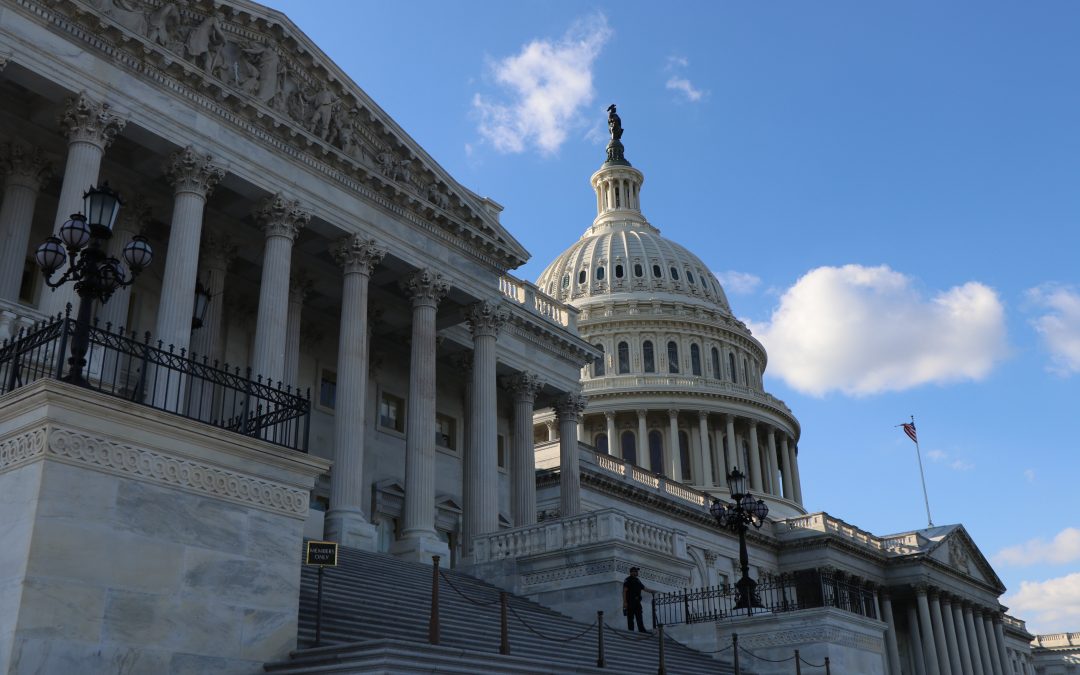WASHINGTON –– The Republican-led House on Wednesday is pressing through a series of measures aimed at immediately ending the national health emergency issued at the start of the COVID-19 pandemic, although the move may be more symbolic after President Biden this week announced he would do so as of May 11.
On Wednesday, the House introduced a bill to mandate workers return to the office and a joint resolution with the Senate to end the public health emergency. The joint resolution came after the House passed largely along party lines on Tuesday a bill to end the public health emergency. Some representatives argued that the current emergency had long outlived its efficacy.
“President Trump rightfully declared a national emergency concerning COVID-19,” Rep. Paul Gosar (R – Ariz.) said on the House floor on Tuesday. “Mr. Biden has since abused presidential authorities by repeatedly extending pandemic powers beyond their timeline.”
The public health emergency, declared by the Department of Health and Human Services, allows the federal government flexibility to modify requirements for the treatment of COVID-19, including for those on Medicare, Medicaid, the Children’s Health Insurance Program and private health insurance programs.
The national health emergency opened up additional resources for the response. It expanded funds for hospitals caring for COVID-19 patients, continued coverage for people under Medicaid and increased access to treatments and other resources to halt the spread of COVID.
The emergencies also allowed for the development and authorization of medical countermeasures and FDA-regulated products. These included several COVID-19 vaccines and drugs like Paxlovid used to treat severe cases of the disease.
Gosar and other Republican representatives contend that continuing the national emergency gives Biden unnecessary powers. Even though neither former President Trump nor President Biden used these powers, Gosar contended the national state of emergency allows Biden to draft Americans without consent, barricade the United States Capitol, place the Public Health Service under military control, and “move money around.”
“Under the continued COVID national emergency extension, more than 120 special statutory powers, only meant for times of actual emergency, continue to be available to Mr. Biden,” Gosar said. “Why does Biden continue to extend the COVID-19 national emergency? The answer is simple. To force Americans to live under extreme measures that deprive us of our freedoms.”
A spokesperson for the HHS, Ilse Zuniga, however, said the national and public health emergency declarations remain effective. Zuniga said allowing the measures to stay in place until May 11 allows HHS to work with local governments before the emergency declarations expire.
“COVID-19 remains a public health priority,” Zuniga said. “Over the next few months, the Department of Health and Human Services will transition its current flexibilities enabled by the COVID-19 emergency declarations into normal order working with states and jurisdictions to ensure an orderly transition.”
But, Zuniga added that the agency agrees it was time to start transitioning out of the national emergency. She said the Biden administration has successfully implemented the largest adult vaccination program in U.S. history.
Daily COVID-19 cases are down 90%, COVID-19 deaths have declined 80% and hospitalizations have dropped 75%, she added. At least 1.1 million Americans have died of COVID, including more than 3,700 last week alone, according to the Centers for Disease Control and Prevention.
“COVID-19 is not over, but thanks to the Biden-Harris Administration’s whole of government response, we are in a different phase of the pandemic than we were three years ago,” she said. “(We) can effectively lift the PHE and leave the emergency phase of the response.”


